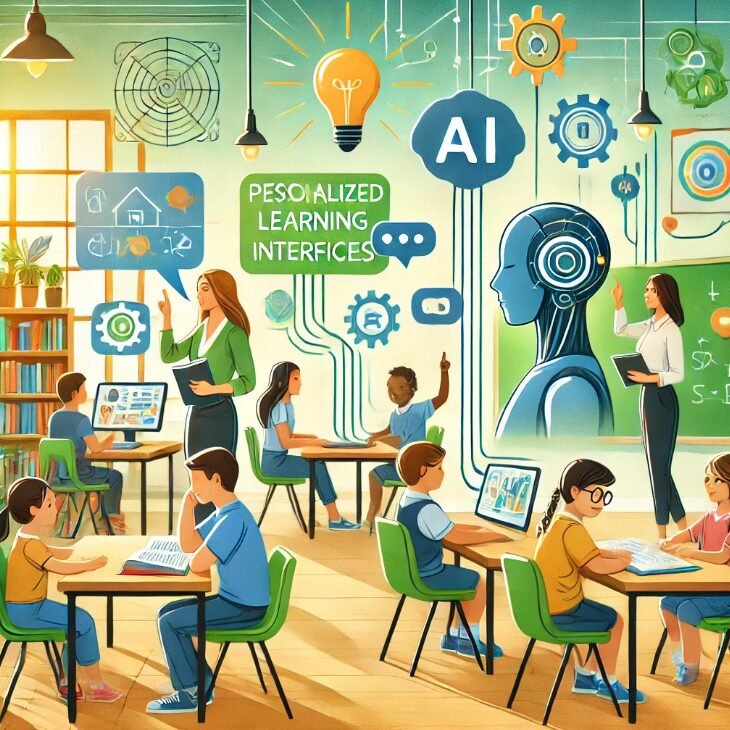Artificial Intelligence (AI) is transforming education in numerous ways, and its impact is particularly profound in the field of special education. For students with diverse learning needs, traditional educational methods often fall short in providing the personalized support they require. AI offers innovative solutions to this challenge by enabling highly customized learning experiences tailored to the unique abilities of each student. This blog explores how AI is revolutionizing special education, making it possible to meet the individual needs of every learner.
The Power of Field Case Studies in Understanding Real-World Businesses
Personalized Learning Paths
One of the most significant advantages of AI in special education is its ability to create personalized learning paths. AI-driven educational platforms can assess a student’s strengths, weaknesses, and learning preferences in real-time. This data allows the system to adapt content, adjust the pace of instruction, and provide targeted support tailored to each student’s needs. For instance, a student with dyslexia may receive text-to-speech assistance, while a student with autism may benefit from AI-driven social skills training modules.
These personalized learning experiences ensure that students with special needs are not left behind and can progress at their own pace, building confidence and competence in their abilities.
Enhancing Accessibility
AI technologies are also making education more accessible for students with disabilities. Tools such as speech-to-text and text-to-speech applications help students with hearing or visual impairments access educational content more easily. AI-driven translation tools can also assist students who communicate through sign language, breaking down barriers to learning and communication.
Moreover, AI can analyze patterns in student behavior and performance, providing educators with insights that can help them create more inclusive and supportive learning environments. By identifying potential challenges early on, AI allows for timely interventions that can prevent students from falling behind.
Supporting Educators
AI doesn’t just benefit students; it also empowers educators in special education settings. Teachers can use AI tools to monitor student progress, identify areas where additional support is needed, and adjust teaching strategies accordingly. This data-driven approach helps educators make informed decisions that enhance the learning experience for each student.
Additionally, AI can automate time-consuming tasks such as grading and lesson planning, freeing up educators to focus on direct interaction with their students. By reducing administrative burdens, AI allows teachers to dedicate more time to providing personalized attention and support.
Promoting Independence
For students with special needs, developing independence is a crucial goal. AI can support this by offering tools that help students learn and complete tasks on their own. For example, AI-driven apps can guide students through complex activities step by step, allowing them to practice and master skills independently. Over time, this fosters a sense of autonomy and self-confidence, empowering students to take charge of their learning.
Ethical Considerations
While AI offers numerous benefits in special education, it’s essential to consider the ethical implications of its use. Ensuring data privacy, avoiding algorithmic biases, and maintaining human oversight are critical to the responsible implementation of AI in education. Educators and developers must work together to create AI tools that are not only effective but also equitable and respectful of each student’s rights.
Conclusion
AI is opening up new possibilities in special education by providing personalized, accessible, and supportive learning experiences for every student. By harnessing the power of AI, educators can better meet the diverse needs of students with special needs, ensuring that all learners have the opportunity to succeed. As technology continues to advance, AI will play an increasingly important role in creating inclusive educational environments that empower every student to reach their full potential.
Visit The Case HQ for 95+ courses
Read More:
Utilizing Published Sources in Case Study Research: Advantages and Pitfalls
Leveraging Case Studies for Business Strategy Development
Inspiring Innovation Through Case Studies: A Deep Dive
The Art and Science of Writing Effective Case Studies
Exploring the Role of Case Studies in Market Research
How Case Studies Foster Critical Thinking Skills
Successful Case Studies in Healthcare: What Can We Learn?
The Evolution of Case Studies in the Digital Era
Tips to Effectively Analyze a Business Case Study
Step-by-Step Guide: Backward Design in Course Planning for Effective Teaching
From Traditional to Transformative: The Evolution of Pedagogy in Modern Education



Responses